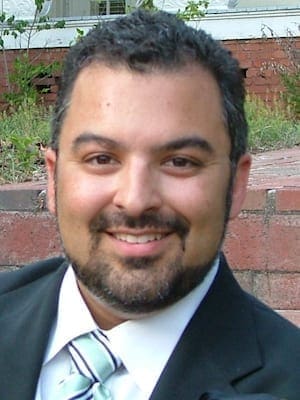I came off of a very productive Lent this past season.
My Lent involved fasting from politics – from listening, watching, reading and anything having to do with politics. That was a good exercise.
Before Lent, I was up too late watching CNN, wasting away in the midnight hours reading The Washington Post and subjecting my family to the XM politics station during road trips.
Lent is not only a time to give up something just to give it up, but also to consider why it has detrimental effects in your life.
While I fasted, I had plenty of time to pray and reflect on my politics addiction. The news was definitely affecting my life, setting me up for exhaustion and producing in me a moodiness that rippled through my whole family.
I decided that once Lent came to an end, I would limit my access to that kind of toxin.
It has been about a week, and I have not watched CNN or Fox News. I only stayed up late one night to watch clips from “The Daily Show” and read articles on my cell phone. I’ve listened to the XM channel but not while my family was in the car.
Yet, as I have taken in only a spoonful of the news, I have already seen the affects draw on my mood.
Since Palm Sunday, I’ve been annoyed by a terrible United Airlines incident, frustrated with a misstatement about the Holocaust from Sean Spicer and flustered by an inability to assess a coherent foreign policy strategy from the State Department as it relates to our allies and those not so friendly to the United States.
But in catching up and staying abreast of the news (as minimally as possible, mind you!), I have come to realize something that frightens me a bit.
It seems that many policies and the politics of the day have not turned a corner to bring about the type of bipartisan compromise and legislation that I had hoped for since the election in November.
Rather, there seems to be a sense of punishment in contemporary politics that has stifled the promise of good, modest governance.
Could it be that healthcare reform did not happen not because there weren’t better plans on the table, but because the spirit in which reform arose was out of an eagerness to punish the opposing party? And, by way of that, appearing to punish people who have benefited from the Affordable Healthcare Act?
Could it be that a coherent foreign policy has not surfaced because we are still trying to punish belligerent nation-states that stand in the way of peace and progress throughout the world?
The presidential election is now five months over, and yet even during Holy Week I heard about emails, Benghazi, healthcare, financial crises, conflicts of interest, careless rhetoric and unwieldy town hall meetings.
I watched a video in which an innocent doctor was bludgeoned and punished for not volunteering his seat for which he reserved and paid on an airplane.
It has made me want Lent again. To go into a cave, bury my head in the sand and live in the dark where I can stumble on my own with as little damage to others as I can possibly muster.
But then again, we celebrated Easter yesterday and my sermon quoted Edmund Burke, “The only thing necessary for the triumph of evil is for good men to do nothing.”
That’s not just about evil, and don’t read into my quote; this is not a partisan article.
It’s about the choice of either doing nothing or working constructively – together – to bring about the change and transformation we all long to see in the world.
We have to change the tone of our politics. We have to move from punishment to progress, from bickering and hostility to conversation and compromise, from one-upsmanship to friendship.
It doesn’t take an act of Congress; it only takes a commitment to get over ourselves and do what is right, for people to stand up to corporate and big-money interests, and for voters and constituents to be involved in the workings of government.
As the adage goes, “The pen is indeed mightier than the sword,” and the only way to be the presence of Christ in the world is to be present in the world.
So, I guess the cave will have to wait because Christ calls me to live in the light, not the darkness of the tomb.
Christ calls us all to live into God’s future by God’s miracles, not the present realities that stumble along by happenstance and coincidence. It’s a word of hope, but easier said than done.
Joe LaGuardia is senior pastor of First Baptist Church in Vero Beach, Florida. He is the author of “Awe and Trembling: Reflections for the Christian Journey,” a book of articles and homilies. A version of this article first appeared on his blog, Baptist Spirituality, and is used with permission.
Joe LaGuardia is senior pastor of First Baptist Church in Vero Beach, Florida.

